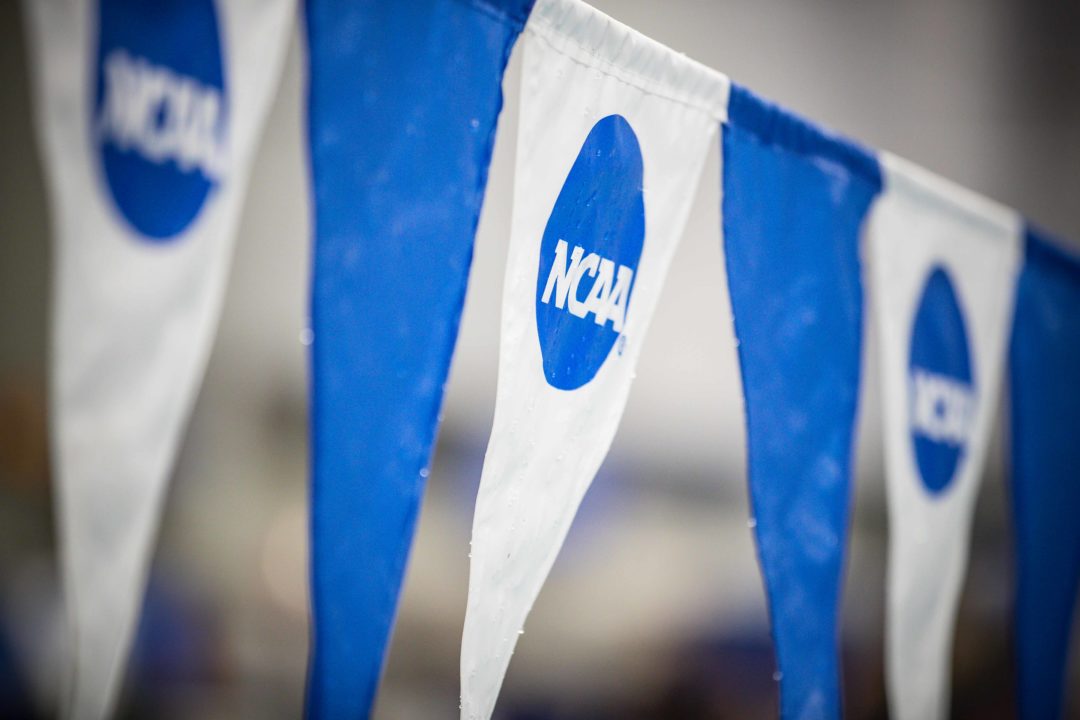In the lead-up to the NCAA’s special constitutional convention in November, the organization sought out feedback from a group of experts across college athletics in order to identify how the NCAA constitution should be transformed to best meet the needs of its athletes.
The NCAA Board of Governors Constitution Committee conducted an online survey, seeking feedback from college presidents, faculty athletics representatives, athletics administrators, conference commissioners, coaches association executive directors and student-athlete leaders.
More than 4,800 administrators and college athletes responded to the survey.
The survey asked the respondents to identify the current elements in the NCAA constitution that should be carried forward into the future and asked for any suggestions for modernization and improvement.
One of the more intriguing issues raised was the potential for a chance to the NCAA’s division structure.
A slight majority of respondents out of Division I endorsed a change to the current divisional structure, while about one-third from Division II and Division III agreed that it needs changing.
Looking solely at the autonomy conferences in Division I, the “Power Five” conferences, over two-thirds of respondents supported a change to the divisional structure, while 45 percent from nonautonomy conferences did so.
Among the suggestions for a new divisional structure included calls to increase the number of divisions (often calling for an expansion of Division I), breaking the autonomy conferences out of Division I and permit self-governance, reconsider Division I subdivisions by extracting FBS football from NCAA oversight, and restructure divisional membership, taking into account geography, campus enrollment or resource level.
Another important issue raised in the open-ended question section was that administrators in Division II and Division III felt that they would be heavily impacted by the work of the Constitution Committee, but will have very little voice in the process.
Among those who want change, some noted that they would like greater equity in terms of divisional representation and decision-making, along with more revenue share with Divisions II and III.
The Board of Governors Constitution Committee will submit a working draft of its proposals for membership feedback in November, which will be discussed at the convention on November 15.
Final proposals will be provided to the Board of Governors by December 15 and scheduled for votes in January.
You can read the full survey summary here.
OTHER FINDINGS
- Over three-quarters within each role by division agreed that the following principles were central to the future of the NCAA as a governing body: conducting national championships, the primacy of the academic experience in policy and decision making, sport-specific rules for competition and participation, standards for allocating national revenue, standards for college athlete eligibility, and standards for college athlete health and safety.
- Over 90% of student-athlete leaders within each division agreed that standards for inclusive and equitable environments were central to the future of the NCAA.
- Division I and Division II were more likely to recommend accountability be set at the national level for championships, health and safety, inclusion and equity, and sport-specific rules of play, while Division III respondents were more mixed between divisional and national accountability.
- Over 60% of athletics health care administrators indicated a preference for national accountability for health and safety, while a majority of athletics diversity and inclusion designees indicated a preference for national accountability for inclusion and equity
- Accountability for the allocation of athletics department resources was most likely to be endorsed at the campus level.
- Both administrators and student-athlete leaders indicated that principles of diversity, inclusion and equity should be central to the constitutional redrafting.
- A small number of administrators felt that the NCAA should “stay in its lane” as an athletics association, and focus more on competition and national championships rather than engaging and addressing matters relating to social, cultural or political issues.
- Student-athlete leaders advocated for increased focus on mental health and more avenues for student-athletes to have a voice in decision making.
